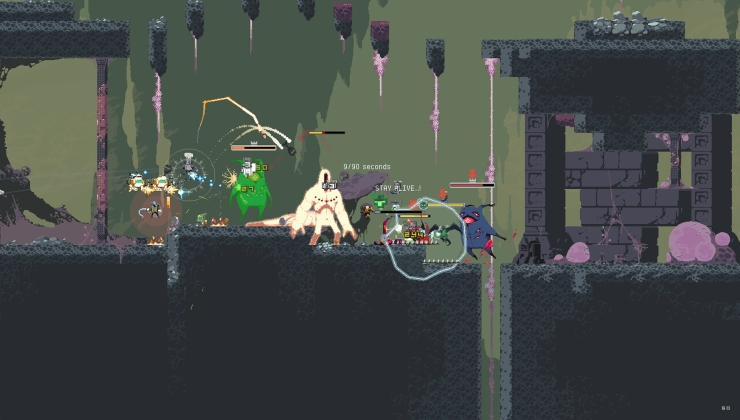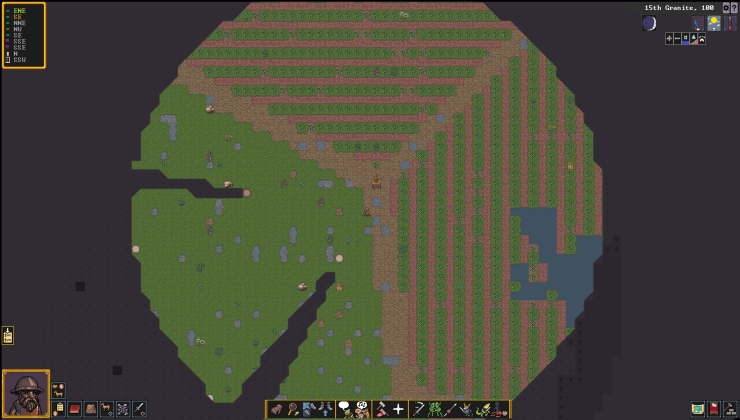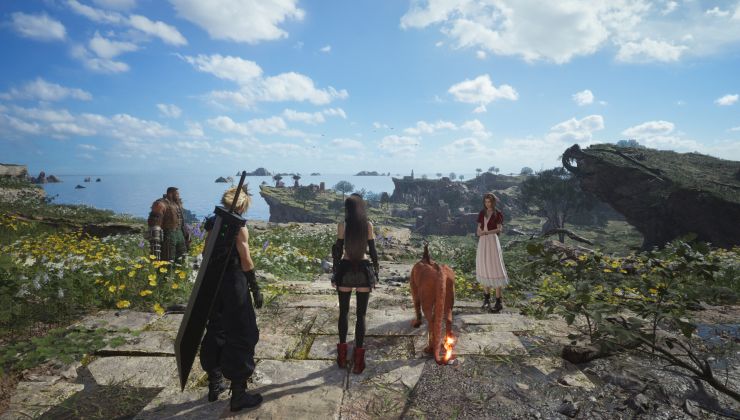Unity Technologies have announced an overhaul to their fees for game developers, which now includes tracking game installs and revenue. Update notes: future updates will be at the bottom of the article.
In the announcement they call it the Unity Runtime Fee, which is based upon a qualifying game being downloaded by users. They said they chose it because they believe "an initial install-based fee allows creators to keep the ongoing financial gains from player engagement, unlike a revenue share". Given that it's a flat-fee though, this will likely sting game devs who sell games at a lower cost since this fee will be on top of all their other fees (like Steam's 30% cut for example).
What games will be hit? As they explained:
- Unity Personal and Unity Plus: Those that have made $200,000 USD or more in the last 12 months AND have at least 200,000 lifetime game installs.
- Unity Pro and Unity Enterprise: Those that have made $1,000,000 USD or more in the last 12 months AND have at least 1,000,000 lifetime game installs.
This plan comes into place on January 1st, 2024 and they gave this breakdown of it:
Note: Unity said it won't be applied retroactively when you hit the cap, the install fee is charged after the threshholds have been met for additional installs. However, it will apply to games already on the market. However, games that do not hit the thresholds or aren't monetised at all will not be required to pay the fees.
This is on top of the Unity subscription developers already pay, although Unity will be removing the annual revenue limit on the Unity Personal plan when this launches. For anyone on Unity Pro though, for example, the above is on top of the subscription cost which is $2,040 per year or $185 a month per-person.
One of the concerns with this is from a privacy standpoint: how exactly will they be tracking this? Since they will be invoicing developers directly based on their install tracking. They don't really make that clear. There's various other problems that Unity need to make clear. As just one example - what about keys for a game in a charity bundle, how are they going to be counted if the game is paid but they're given away? What about if there's a pirated version, how are they tracking legit paid installs? There's probably numerous other examples where it may cause problems.
Another change buried in the FAQ is that people on the Unity Personal plan need internet access to continue to use Unity. If you lose internet, you can only continue using it for 3 days while offline.
Update: since there's been a huge uproar from Unity developers, especially on their official Unity forum, one of their team has clarified some details about the monthly rate:
Ya, sorry, I get how this wording is confusing. So, let's say you have your 1,000,001th install, officially pushing you over the cap. You will have a fee of 15 cents. You will not pay that 15cents every month. Just a single time. The monthly thing is to indicate a monthly assessment to see where your installs are and revenue is to see if you had more installs or dropped below the cap. Does that help?
In another post, they also clarified it's "Per game / project".
Update #2: On social network X, Unity put up this statement I've copied below in case you can't access X:
Today we announced a change to our business model which includes new additions to our subscription plans, and the introduction of a Runtime fee. We wanted to provide clarifying answers to the top questions most of you are asking.
Yes, this is a price increase and it will only affect a small subset of current Unity Editor users.
Today, a large majority of Unity Editor users are currently not paying anything and will not be affected by this change. The Unity Runtime fee will not impact the majority of our developers.
The developers who will be impacted are generally those who have successful games and are generating revenue way above the thresholds we outlined in our blog. This means that developers who are still building their business and growing the audience of their games will not pay a fee. The program was designed specifically this way to ensure developers could find success before the install fee takes effect.
We want to be clear that the counter for Unity Runtime fee installs starts on January 1, 2024 - it is not retroactive or perpetual. We will charge once for a new install; not an ongoing perpetual license royalty, like revenue share.
We looked for ways to lessen the impact on developers, and provide ways to bring the Runtime fee to zero. If you’re using any of our ad products, Unity Gaming Services or cloud services, etc. please contact us to discuss discounts.
We are actively listening to and following your questions closely. Please review our FAQ (https://on.unity.com/3PAiqHH) on today’s announcement. We also invite you to continue to discuss these changes with us on our forums: https://on.unity.com/3RmyLRx.
Update #3 13/09/2023: Unity have now compiled a list of common questions and answers in their official forum post, which doesn't seem to have made things any better. In fact, it only confirmed some of the worst fears from developers. Like this for example:
Q: If a user reinstalls/redownloads a game / changes their hardware, will that count as multiple installs?
A: Yes. The creator will need to pay for all future installs. The reason is that Unity doesn’t receive end-player information, just aggregate data.
So, at the current time with their plan, developers need to pay each time you uninstall and re-install. And each time you install on a different device. As they briefly explained there, they have no way to tell the actual difference on reinstalls since it's just aggregate data.
Then there's this too:
Q: If a game that's made enough money to be over the threshold has a demo of the same game, do installs of the demo also induce a charge?
A: If it's early access, Beta, or a demo of the full game then yes. If you can get from the demo to a full game then yes. If it's not, like a single level that can't upgrade then no.
What this means is that if developers have a demo for their game, and this game is over both the install and revenue threshold, if the demo progress carries over into the full game the demo itself is classed as another install that will cost developers money (even if the demo player doesn't buy the game).
As for how Unity are tracking installs, especially for things like pirated installs and people having a grudge against a developer to spin up lots of reinstalls (it will happen…), Unity basically tell you to trust their black-box proprietary tech on that (from their FAQ):
We do already have fraud detection practices in our Ads technology which is solving a similar problem, so we will leverage that know-how as a starting point. We recognize that users will have concerns about this and we will make available a process for them to submit their concerns to our fraud compliance team.
Also from their replies on X:
We leverage our own proprietary data model, so you can appreciate that we won’t go into a lot of detail, but we believe it gives an accurate determination of the number of times the runtime is distributed for a given project.
So it's just a "trust me bro" situation here for developers.
A lot of developers are absolutely furious at Unity. Not just because it has been communicated so badly, and because even just based on that one answer above the cost to developers will be ridiculous, but because Unity just pulled the rug from under developers with entirely new terms even for existing games. Even if they reverse course, it shows that Unity are willing to change anything at any time which is incredibly risky for developers embarking on multi-year game development. This thread on X from respected developer Rami Ismail highlights things quite well.
Perhaps it's time to take a look at the free and open source Godot Engine?
Would it discourage devs from selling on stores like GOG without DRM?
I wonder how this applies to stores like GOG, where the installers can be used on multiple computers with a single purchase.Well, you can do the same on Steam anyway. But it does just add to the list of questions Unity need to clear up, especially since GOG provide the completely offline installers heh.
Last edited by Liam Dawe on 12 Sep 2023 at 3:22 pm UTC
Fortunately Godot provides a C# mono build (and supports Linux on top of that
Most of the work I do is contracting, and most of the contracting people want to hire us for nowadays is Unity. I've become so tired of Unity's crap. :( The constant turnover and deprecation of APIs, the constant breaking changes, the instability and unpredictability of working with them... Augh! I'm making a game on the side called Veridian Expanse and I'm absolutely _not_ using Unity as I want to be able to enjoy creating it.
I wonder how this applies to stores like GOG, where the installers can be used on multiple computers with a single purchase.Well, you can do the same on Steam anyway. But it does just add to the list of questions Unity need to clear up, especially since GOG provide the completely offline installers heh.
They'll likely count an installation when the game is run on a machine for the first time.
Nobody uses Unity because it's a great engine, they use it because it's inexpensive for indy'ish games (and probably easier for less experienced people to work with, I'm guessing. It sure can invite garbage in the wrong hands)
They'll likely count an installation when the game is run on a machine for the first time.
I'll not tolerate my GoG games phoning home. I might have to start running Lutris in a namespace with no network access if I can no longer trust the games.
I don't think that would be practical, because then devs would get billed by Unity for game installs, whether legit or not. Moreover, you can legitimately have a game installed in multiple places.
How would it even know it is running on a machine for the first time? (in the offline GoG installer case I mean). Planting a file somewhere and phoning home to Unity's servers next time it has network connectivity? Simply the presence of the game's userdata wouldn't suffice.
I could see them tracking purchases, but anything else would be impractical.
Last edited by Grogan on 12 Sep 2023 at 6:32 pm UTC
I giggled.
Jeez. This is the most Unity-in-202X thing I've heard yet. Remember when they bought that IronSource analytics company? (The one that had an uneasy past relationship with malware?) They released a bunch of financials at that time that made it pretty obvious that they made very little money from the game engine itself. It was all ads, services, and selling user data. This slots right in with that honestly...Mmh... InstallCore, nice, hadn't heard of that, probably Windows only...
Not to forget [Red Shell](https://en.wikipedia.org/w/index.php?fulltext=1&search="Red+Shell")... wait, there's not even an article (any more?)! And only a single mention in a related topic? Now that's what I call spin doctoring... There was something, right? Red Shell? Unity's
Welcome to
I would love to say that this will push more developers to use FOSS engines but my faith in developers isn't that high.It might nudge a couple indie devs in the right direction, although I too have lost confidence. For bigger studios though I somewhat doubt the developers are the ones calling the shots, as opposed to management.
And for the really tiny new ones, it probably depends on what the youtube algorithm of the day spits out for "beginner game engine tutorial"... which is probably a self-amplifying loop unless the fallout from this is really massive.
This seems nonsensical and over-engineered. I hope this drives a surge in interest in Godot.
What is the relevance of number of installs?
If I was to guess, it's because they are squarely targeting the mobile free-to-play market where installs are high. You gotta remember Riccitello (the CEO) insulted developers as "f*cking idiots" if they don't monetize right. From the context... he meant microtransactions. This was just last year, and that's where he thinks the money is. (https://www.pocketgamer.biz/interview/79190/unity-ironsource-john-riccitiello-marc-whitten-merger/)
because I can guarantee you that over at unity they're also looking for ways to monetise directly from the people who play the games.
Last edited by emphy on 13 Sep 2023 at 4:19 am UTC
Well, that's great news for Godot !It really is. As soon as the news land, one of the NekoNyan member (they do VN translation and in case of older titles often port them to their home-grown Unity engine) said they're looking at Godot now. It's still informal for now, but I do expect a lot of devs to be looking at alternatives now, even if Unity backtracks.
Also, Mihoyo is... probably not happy about these. I think they already use Qt for portions of their game, like their internal browser, so they might not be against OSS engine entirely... wonder if Zenless Zone Zero will be delayed now, along with other Chinese gacha games who likes Unity as well.
Last edited by fenglengshun on 13 Sep 2023 at 5:01 am UTC














 How to set, change and reset your SteamOS / Steam Deck desktop sudo password
How to set, change and reset your SteamOS / Steam Deck desktop sudo password How to set up Decky Loader on Steam Deck / SteamOS for easy plugins
How to set up Decky Loader on Steam Deck / SteamOS for easy plugins
See more from me